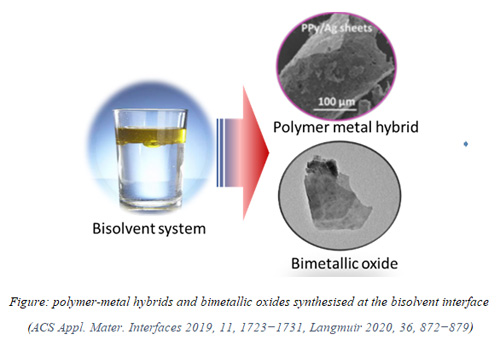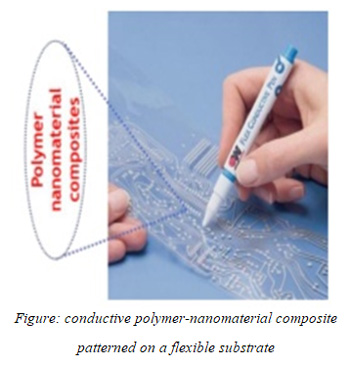 Dr. Mini Mol Menamparambath, Assistant Professor at National Institute of Technology Calicut (NITC), Calicut is exploring synthetic strategies in controlling the physicochemical properties of nanomaterials with INSPIRE Faculty Award instituted by the Department of Science & Technology, Govt. of India.
Dr. Mini Mol Menamparambath, Assistant Professor at National Institute of Technology Calicut (NITC), Calicut is exploring synthetic strategies in controlling the physicochemical properties of nanomaterials with INSPIRE Faculty Award instituted by the Department of Science & Technology, Govt. of India.
On focusing on the multifunctional nanomaterials and composites for sensors and conductive inks, this material scientist strongly presumes that proposing new processing techniques and introducing novel polymer nanomaterial composites possessing extremely high flexibility and mechanical stability is crucial for developing future electronic devices. The INSPIRE faculty award will expedite her research on novel synthesis routes to develop potential polymer nanomaterial hybrids and composites.
While many researchers have focused on nanomaterials ranging from zero to three dimensional (0 – 3D) structures, Dr. Mini’s research group at NIT Calicut is focusing on a relatively new synthesis route called ‘organization of molecules and the crystal nucleation at the interface of two immiscible liquids.’ This strategy promotes the development of polymer-metal hybrids such as silver nanoparticles anchored on micro-sized polypyrrole sheets, as mentioned in her work, which was published in the journal ‘ACS Applied Materials and Interfaces.’
The same methodology was employed to develop structurally ordered bimetallic oxides at the bisolvent interface, which was published in the journal ‘Langmuir. Her research group reported a facile regulation of the interface of two immiscible solvents to achieve the physicochemical tuning of the polymer-metal hybrids and bimetallic oxides and advanced with the devising of these materials for daily life applications. A real-time health monitoring device to detect the abnormality of neurotransmitters in the human body and the prototype has been developed and patented in India (Patent Application No. 202041014799) by her group. Dr. Mini suggests that the invention can be further explored for the precise monitoring of neurotransmitters and other biological molecules, which is imperative for pathophysiology research, as well as in the disease diagnosis and management.
 The enormous size of the electronic device industry demands potential materials to resolve the challenges involved and to look beyond the existing ones. Her team is working to keep improving the physicochemical properties of nanomaterials as the society and industry demands novel materials for wide applications. The conductive polymer-nanomaterial composite patterned on a flexible substrate are used in modern electronic devices. Intending to delve deep into the components of the electronics devices and developing less expensive potential materials of high mechanical flexibility and multi-functionalities, Dr. Mini, along with her research group, is further working to develop nanomaterial-polymer composites for engineering into electronic devices.
The enormous size of the electronic device industry demands potential materials to resolve the challenges involved and to look beyond the existing ones. Her team is working to keep improving the physicochemical properties of nanomaterials as the society and industry demands novel materials for wide applications. The conductive polymer-nanomaterial composite patterned on a flexible substrate are used in modern electronic devices. Intending to delve deep into the components of the electronics devices and developing less expensive potential materials of high mechanical flexibility and multi-functionalities, Dr. Mini, along with her research group, is further working to develop nanomaterial-polymer composites for engineering into electronic devices.
The prestigious DST-INSPIRE Faculty award opened opportunities for the researcher to start her own research group in the Department of Chemistry, National Institute of Technology Calicut, Calicut in Kerala and to strengthen it with young avid researchers. The research funding was used in developing the research lab for the smooth functioning of the research group, including the training of undergraduate students from various disciplines.
Link of Publication: https://www.chemtronics.com/circuitworks-conductive-pens-and-inks
For more details contact Dr. Mini Mol Menamparambath (minimol[at]nitc[dot]ac[dot]in, neeharabindu[at]gmail[dot]com, +91-86-0635-6775 )






























